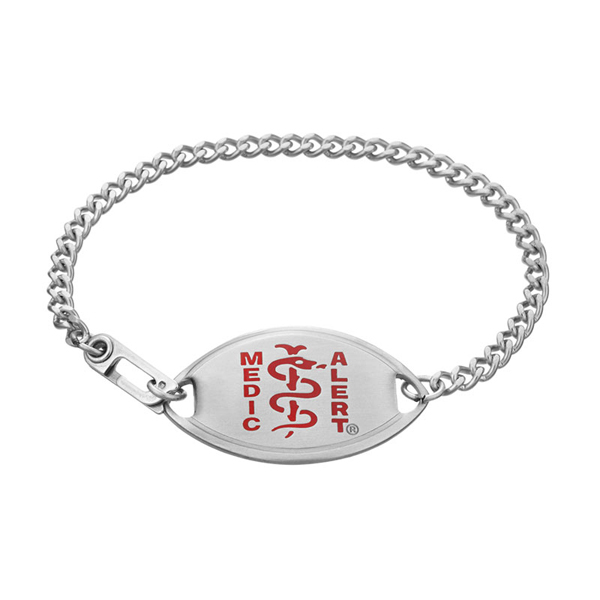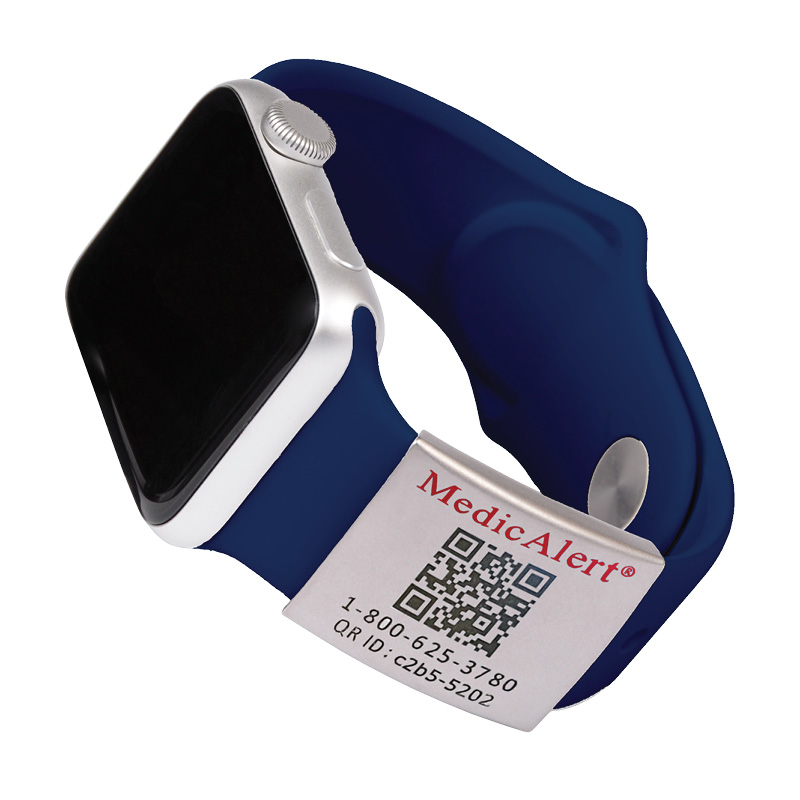
Medical IDs for Allergies
In 2020, the Centers for Disease Control and Prevention (CDC) estimated that 1 in 54 children in the U.S. have autism – and the rate of diagnosis has doubled since 2004. Read below to learn how a medical ID can protect you and your loved ones.
The confidence to live with autism
In 2020, the Centers for Disease Control and Prevention (CDC) estimated that 1 in 54 children in the U.S. have autism – and the rate of diagnosis has doubled since 2004. Currently there are more than 3.5 million Americans living with ASD. Many people living with Autism Spectrum Disorder (ASD) have challenges with communication and/or may have a tendency to wander.
That’s why medical IDs for autism play an especially important role in providing extra safety for those living with autism.
How MedicAlert protects those with allergies
One thing you shouldn’t worry about is what could happen in the event your loved one wanders. MedicAlert’s protection plans offer benefits that extend beyond the ID, providing safety and peace of mind for people living with autism, their families and caregivers.

24/7 Wandering Support
Wandering is common with autism. We work with local authorities to help ensure a safe return.

Digital Health Profile
All your vital information, all in one place for you and your caregiver.

Emergency Contact Notification
In an emergency, we connect families so that no one is alone in a crisis.

24/7 Emergency Response
Our team provides first responders the information they need to provide fast, accurate care.
Pair a medical ID for autism with the protection plan that’s right for you.
What is autism?
Autism, or autism spectrum disorder (ASD), is a complex, lifelong developmental disability that typically appears during early childhood. It can impact a person’s social skills, communication, relationships, and self-regulation.
Autism is classified a spectrum disorder. That means that there is a broad range of developmental challenges that some may face – and that every person with autism will have a different expression of the disorder.
There is no one type of autism. Autism can be influenced by several genetic and environmental factors. Each person with autism is not alike, and each has their area of strengths and challenges. Those with autism learn, think and manage daily living activities across a wide range of capabilities – from highly skilled to very challenging. Some with ASD may require daily living assistance, while others need less support and will live independently.
The development of autism can be accompanied by other medical conditions like sleep disorders, seizures, or gastrointestinal (GI) disorders. In addition, mental health challenges such as anxiety, social anxiety, depression and attention-deficit/hyperactivity disorder (ADHD) may develop.
Early identification and diagnosis is critical, as research shows that early interventions can have a significant long-term positive effect on symptoms and skill development.
“
“I was driving around for less than 10 minutes when MedicAlert called me. Brandon would have kept going and ended up who knows where if the nice woman hadn’t stopped and seen his MedicAlert ID bracelet. MedicAlert’s emergency response team told me exactly where I could go to pick up Brandon; I couldn’t help but being a blubbering mess and so grateful.”
Aimee, MedicAlert Member

Why are medical IDs for autism necessary?
If you’re a parent or caregiver of someone with Autism Spectrum Disorder (ASD) the fear of your loved one wandering is very real. Children who do wander may become lost, scared and confused. They may be unable to communicate their name, address or phone number. Kids with autism are often attracted to water, but do not have a well-developed sense of danger. Drowning is a leading cause of death for children with ASD.
Because autism is an invisible condition, it’s difficult to identify if someone needs medical attention or wandered – and first responders may not recognize the condition in an emergency. Medical IDs can alert others that a person has autism. Medical IDs for autism can help protect you or your loved one. An autism medical alert bracelet can communicate to Good Samaritans, law enforcement and first responders, that the person:
- Has Autism or ASD
- Is nonverbal or has limited communication abilities
- Lives with other medical conditions such as seizure or allergies
- Takes specific medications
- Is prone to wander from a safe environment
Engraving your MedicAlert ID for autism
MedicAlert offers free custom engraving on all our autism bracelets and medical IDs for autism. The engraving on your autism ID should include the critical medical information that first responders need to know in an accident or emergency.
The best things to engrave on a medical bracelet for autism include:
- Autism or development disability
- Other medical conditions
- Medications
- Implanted devices
- Allergies
- Any additional medical information that needs to be communicated to first responders

Sample engraving. Consult our team if you need help engraving your medical ID for autism.
Find your medical ID.
What is MedicAlert’s autism wandering support service?
Pairing a custom engraved medical ID for autism with a MedicAlert membership ensures safety in a case of wandering from a safe environment. Nearly half the individuals with developmental disabilities are prone to wandering.
MedicAlert has a tried and tested service to improve outcomes in wandering incidents. How? When someone is reported lost, has wandered, or is found by a Good Samaritan or first responder, our 24/7 Wandering Support® team works with local authorities to reunite our members with their loved ones.
Our team:
- Creates missing person flyers and distributes to local authorities
- Notifies emergency contacts
- Relays critical medical and identifying information to local authorities

Autistic Self Advocacy Network is committed to providing solutions – across the spectrum and throughout the life span – for individuals living with autism.
Living with autism? Get peace of mind.
Pair your ID with a MedicAlert Membership.

Our wandering service keeps you safe. Our team works with local authorities to quickly locate and reunite our members with their loved ones.
We'll be your voice. If you can’t speak for yourself, your ID will speak for you, informing others about your autism and any medications you are taking.
We provide 24/7 emergency protection. Our team will relay your critical medical information to first responders in an emergency, no matter where or when it happens.
We enable you to live with confidence. The freedom to live your life with autism, knowing that MedicAlert is there for you.



